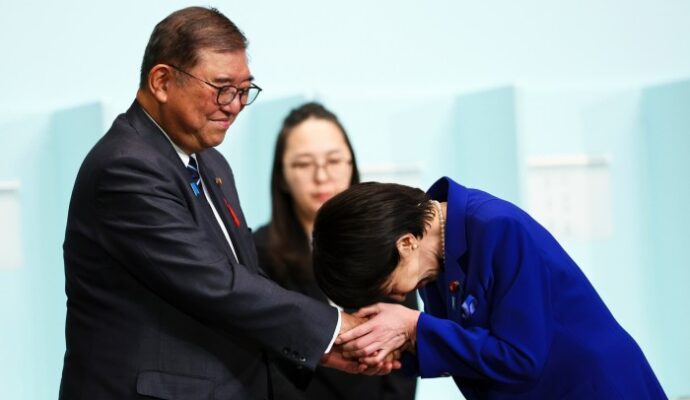Unlock the Editor’s Digest for free
Roula Khalaf, Editor of the FT, selects her favourite stories in this weekly newsletter.
Beijing is putting pressure on tech companies including Alibaba and ByteDance over their orders of Nvidia’s H20 artificial intelligence chips, complicating the US chipmaker’s business in China after striking an export arrangement with the Trump administration.
The tech companies have been asked by regulators such as the Ministry of Industry and Information Technology (MIIT) to explain why they need to order Nvidia’s H20 chips instead of using domestic alternatives, said three people familiar with the situation.
Some tech companies, who were the main buyers of Nvidia’s H20 chips before their sale in China was restricted, were planning to downsize their orders as a result of the questions from regulators, said two of the people.
“It’s not banned but has kind of become a politically incorrect thing to do,” said one Chinese data centre operator about purchasing Nvidia’s H20 chips.
Alibaba, ByteDance and MIIT did not immediately respond to a request for comment.
Chinese regulators have expressed growing disapproval of companies using Nvidia’s chips for any government or security related projects. Bloomberg reported on Tuesday that Chinese authorities had sent notices to a range of companies discouraging the use of the H20 chips, particularly for government-related work.
Beijing is also working to promote domestic alternatives to Nvidia. Chinese chipmakers led by Huawei and Cambricon have been gaining market share after Nvidia’s H20 sales were restricted.
Nvidia, which recently agreed to pay the US government 15 per cent of its revenues from chip sales in China in order to restart H20 sales to the country, is at the centre of a geopolitical battle between Beijing and Washington.
The H20 revenue deal was criticised by US security experts who said the chips would help the Chinese military and undermine US strength in artificial intelligence.
Beijing has expressed concerns about security issues associated with Nvidia’s products, such as potential location tracking and remote shutdown capabilities. The US chipmaker denied having those features.
Trump said on Monday that he might allow Nvidia to sell a more advanced artificial intelligence chip in China based on the chipmaker’s latest and most advanced Blackwell platform. The performance of H20 chips sold to China is restricted compared with those more advanced processors sold to customers in the US.
Bernstein analysts said in a recent report that it expected Nvidia’s China chip market share to drop to 55 per cent this year from 66 per cent in 2024.


